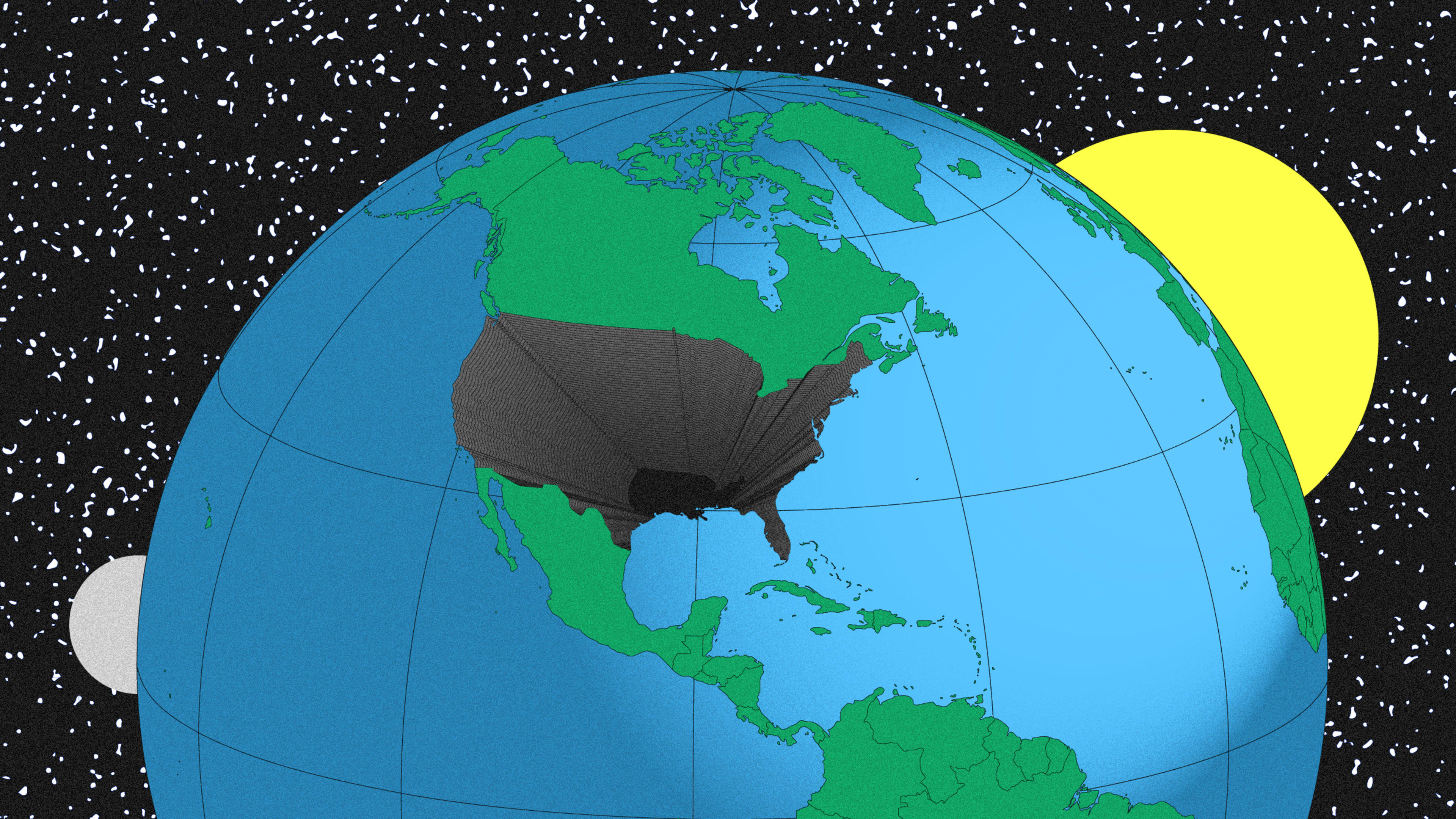Three years after the Trump administration began the process of withdrawing from the Paris climate agreement—the landmark international deal to limit global warming—the U.S. has now reached the date when it can officially pull out: November 4, the day after the election. But depending on the results, the withdrawal might not last long.
When Trump first announced his plans, it set back global progress on reducing emissions at a critical moment. “The U.S. was a vital party to the Paris Agreement,” says Anne Kelly, vice president of government affairs at the nonprofit Ceres. “Our leadership sets a really important example for others to follow as a major contributor of greenhouse gas emissions, and as a country that is so well equipped to put into place targets and goals and laws and regulations that would reduce emissions. For us to bail was just profoundly irresponsible.” (While tomorrow is just the first day the administration can officially withdraw, it does not necessarily have to—though all indications are that it will).
Companies tried to convince Trump to change his mind, including the CEOs of corporations such as the Dow Chemical Company, Morgan Stanley, and even Exxon. And when Trump said he would move forward anyway, arguing against the evidence that the agreement was bad for the economy, hundreds of companies, along with state and city leaders, pledged to take action themselves through a group called We Are Still In. “It was just going to be a little sign-on letter. . . . It ended up becoming a major movement,” Kelly says. “I think the strength of that movement also probably sent an important signal to our global allies that the people of the U.S. are different than its president when it came to the Paris commitment.”
There has been a surge of progress because of this bottom-up support. More than 160 cities, along with 10 states, have goals for 100% clean energy; one in three Americans now lives in a city or state committed to zero-emissions electricity. More than 180 companies, from Nike and Microsoft to Walmart and Tyson Foods, have pledged to reduce emissions in line with the Paris Agreement’s goals to limit warming to 2 degrees Celsius or, even more ambitiously, 1.5 degrees.
Still, it will be hard to stay on track for the U.S.’s original goal under the Paris Agreement—slashing emissions 26-28% by 2025 compared to 2005 levels—without federal support. Many companies, cities, and states “have already set their own aggressive targets, and they’re doing tremendous work to decarbonize transportation sectors and to decarbonize the building sector, and to set their own goals and to purchase large amounts of renewable energy,” says Kelly. “But without putting in place economy-wide federal climate policy, it’s going to be nearly impossible for us to meet the goals and for us to move forward toward a clean energy economy.”
If Biden wins, he can rejoin the agreement, though it will be a challenge to make up lost ground, and he’ll have to quickly jump back into the next step, in which each country is expected to ratchet up the ambition of their original commitment. If Trump wins, federal action will continue to move backward. And even though nearly every other country in the world is a part of the Paris Agreement, and countries such as China and Japan have recently set goals to become carbon neutral, without the U.S. also moving quickly, it may not be possible for the world to cut emissions enough to avoid the worst impacts of global warming.
The timeline is short: As a major international report concluded in 2018, the world needs to reduce emissions roughly in half by 2030 to stay on track. The effects of climate change on wildfires, hurricanes, and other extreme weather are already obvious. Without action over the next four years, “you’re starting to lock in place the reality that we’re going to continue to see the damage take place, and at some point, it becomes irreversible,” Kelly says. “And to pass laws takes time, and then to implement laws takes time. So you just can’t say it strongly enough. As soon as we act, the better off we’ll be. And the cost of inaction will be profound.”
Recognize your brand’s excellence by applying to this year’s Brands That Matter Awards before the early-rate deadline, May 3.
